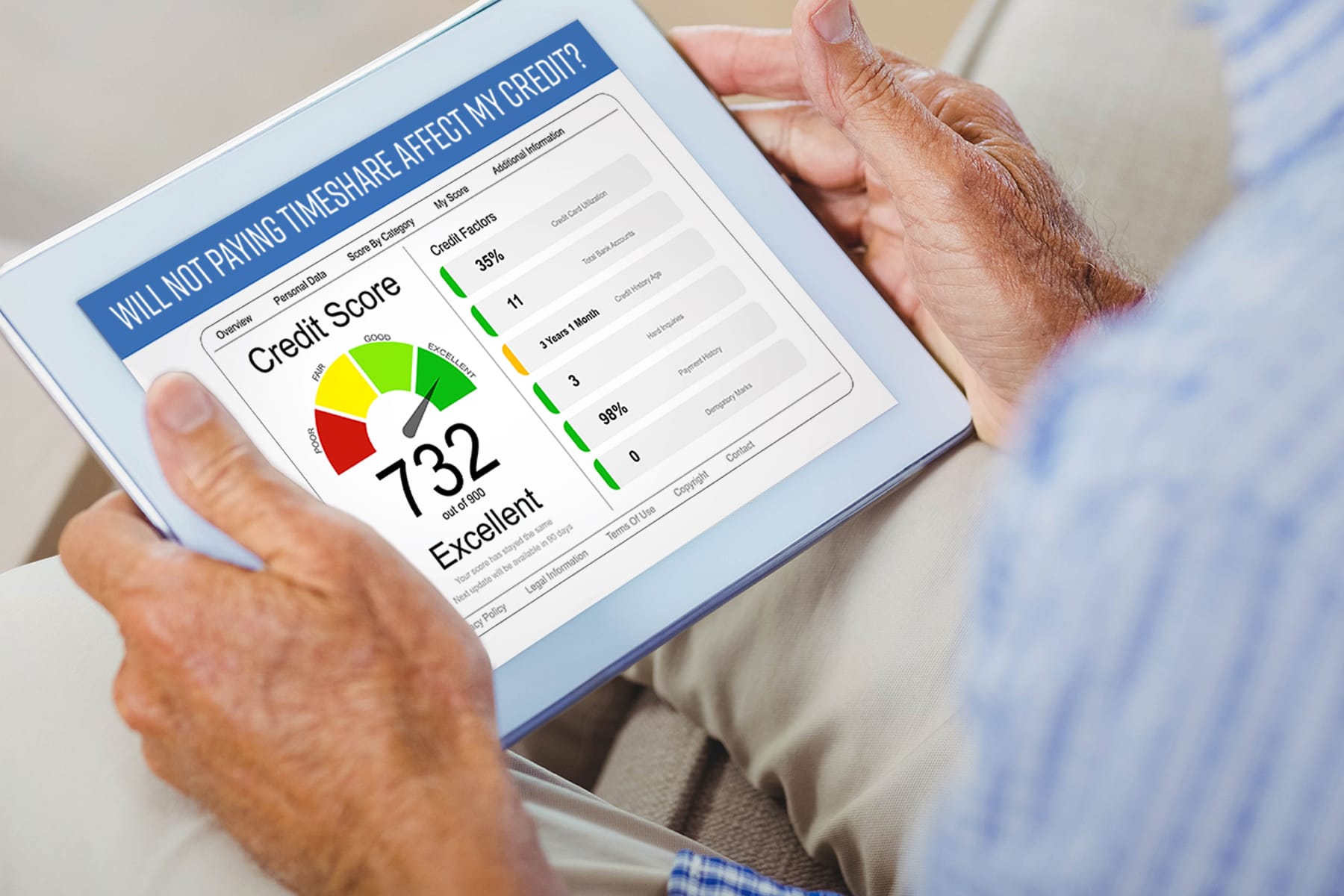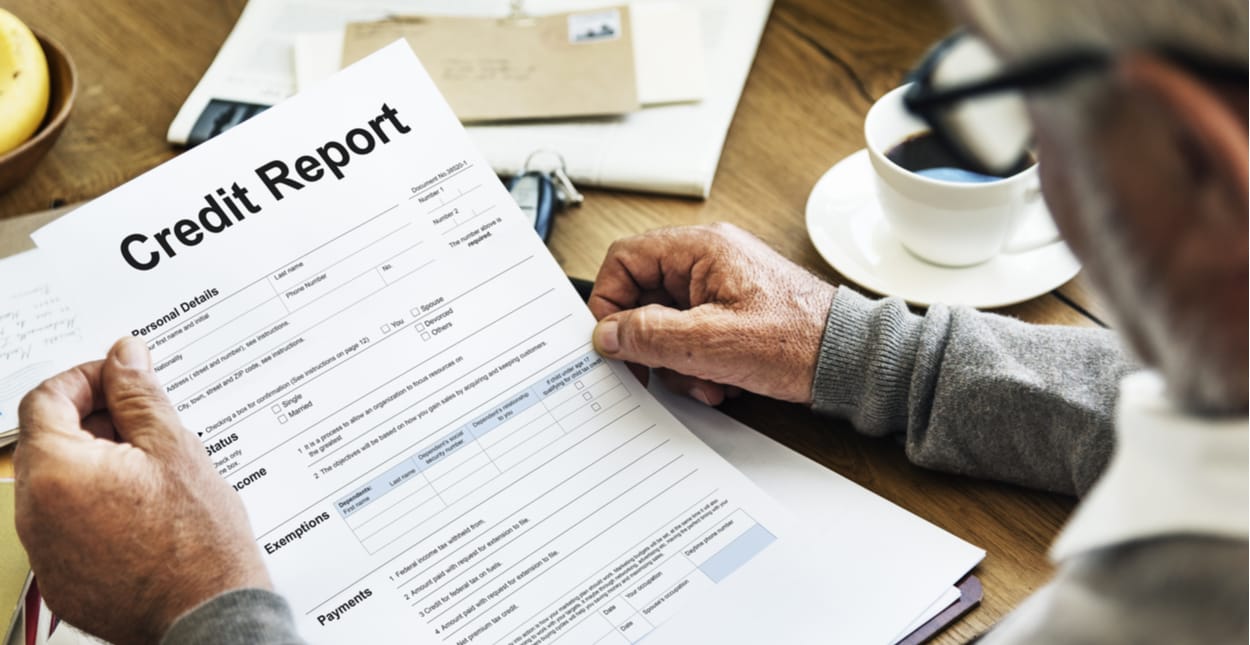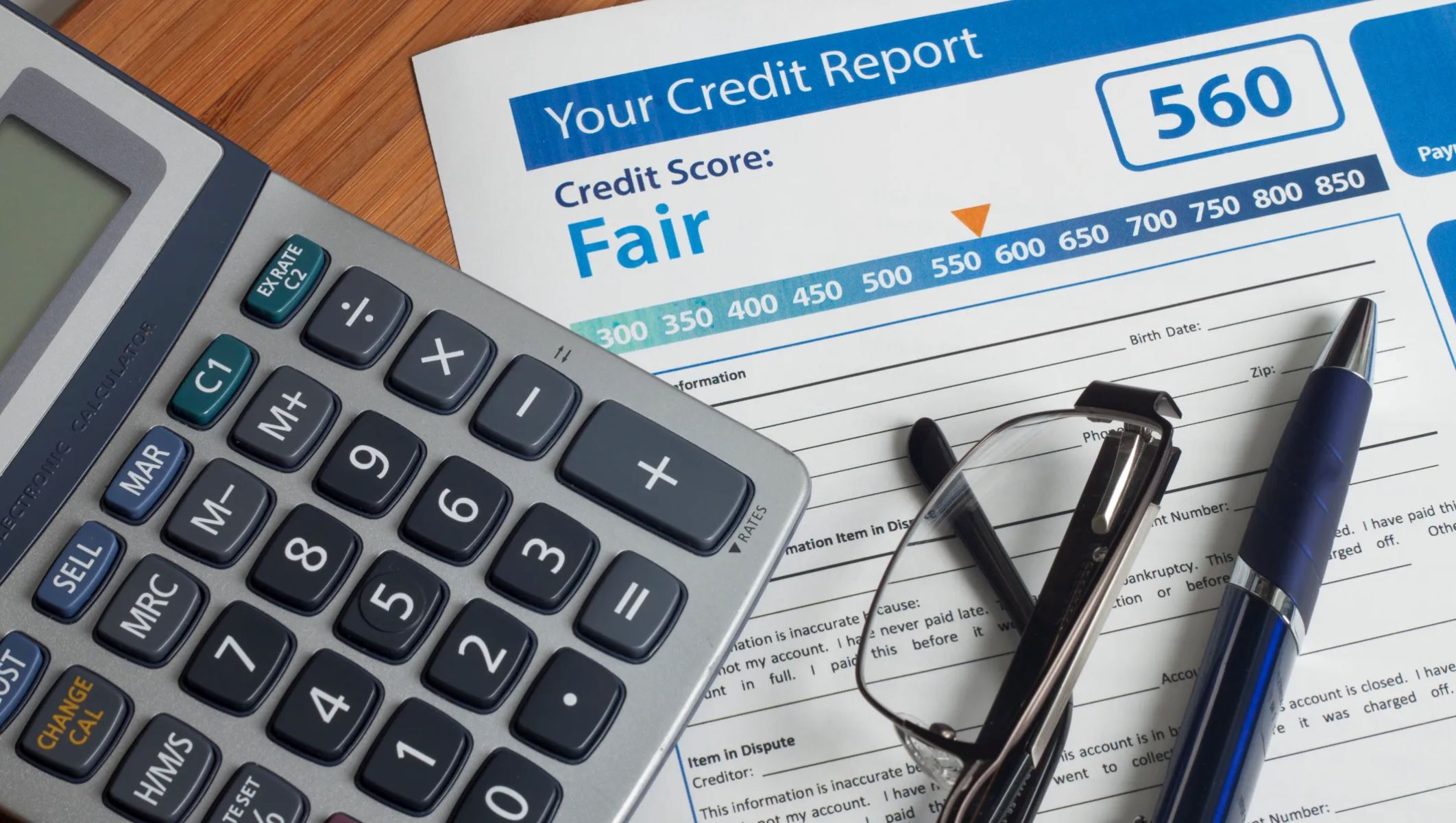Home>Finance>How To Remove Late Student Loan Payments From Credit Report


Finance
How To Remove Late Student Loan Payments From Credit Report
Modified: February 21, 2024
Learn how to improve your credit score by removing late student loan payments from your credit report. Take control of your finances today with our step-by-step guide.
(Many of the links in this article redirect to a specific reviewed product. Your purchase of these products through affiliate links helps to generate commission for LiveWell, at no extra cost. Learn more)
Table of Contents
- Introduction
- Understanding Late Student Loan Payments
- The Impact of Late Student Loan Payments on Your Credit Report
- How Late Student Loan Payments are Reported to Credit Bureaus
- Steps to Remove Late Student Loan Payments from Your Credit Report
- Reviewing Your Credit Report
- Disputing Inaccuracies or Errors on Your Credit Report
- Contacting the Loan Servicer or Lender
- Setting Up a Repayment Plan or Negotiating a Settlement
- Seeking Professional Assistance
- Maintaining Good Credit Habits Moving Forward
- Conclusion
Introduction
Student loans play a crucial role in financing higher education for millions of individuals. However, sometimes unforeseen circumstances or financial challenges can lead to late payments on these loans. Late student loan payments can have a significant impact on your credit report, potentially affecting your ability to secure future loans, qualify for low interest rates, or even rent an apartment.
Fortunately, there are steps you can take to remove late student loan payments from your credit report and improve your creditworthiness. In this article, we will guide you through the process of understanding the consequences of late payments, how they are reported to credit bureaus, and the strategies you can employ to rectify the situation.
Understanding the intricacies of student loan repayment and credit reporting can be overwhelming, but with the right knowledge and proactive approach, you can effectively dispute errors or negotiate with your loan servicer to remove late payment records from your credit report.
During the following sections, we will provide you with actionable steps to take towards achieving a clean credit report. Whether you want to do this on your own or seek professional assistance, this guide will equip you with the information you need to navigate the process successfully.
Remember, the road to credit recovery may require time and effort, but the end result can make a significant difference in your financial future. Let’s dive in and explore how to remove late student loan payments from your credit report!
Understanding Late Student Loan Payments
Before delving into the process of removing late student loan payments from your credit report, it’s important to understand what constitutes a late payment and why it can have such a significant impact on your creditworthiness.
A late student loan payment occurs when you fail to make your loan payment by the due date specified in your loan agreement. Typically, student loan payments are due on a monthly basis, but the specific due date may vary depending on your loan servicer.
When you miss a payment deadline, your loan becomes delinquent. The longer the delinquency period, the more severe the impact on your credit score and overall credit history. Late student loan payments can stay on your credit report for seven years, negatively affecting your creditworthiness and making it challenging to secure new financing or obtain favorable interest rates.
It is important to note that different lenders may have varying policies when it comes to reporting late payments. Some may report your late payment to credit bureaus as soon as it is 30 days overdue, while others may provide a grace period of up to 60 days. However, keep in mind that making late payments, regardless of a grace period, can still have detrimental effects on your credit score and borrowing potential.
Additionally, it’s crucial to understand that there are different consequences for federal and private student loans. Late payments on federal loans can result in serious repercussions such as wage garnishment, tax refund seizure, or even legal action by the Department of Education. It is vital to stay proactive and address any late payments promptly to avoid these more severe consequences.
Now that you have a clear understanding of what constitutes a late student loan payment and its potential consequences, let’s explore how these late payments are reported to credit bureaus in the next section.
The Impact of Late Student Loan Payments on Your Credit Report
Late student loan payments can have a significant impact on your credit report and overall creditworthiness. Understanding these impacts is crucial for taking proactive steps to mitigate the damage and improve your credit standing.
1. Decreased credit score: Late student loan payments can cause your credit score to drop significantly. Payment history is a major factor in determining your credit score, accounting for approximately 35% of the calculation. Consistently making late payments or having multiple late payments on your credit report can lower your score, making it more challenging to qualify for future loans or obtain favorable interest rates.
2. Negative credit history: Late student loan payments can stay on your credit report for up to seven years. This means that future lenders and creditors will be able to see your payment history, including any late payments. A chronic history of late payments can result in a negative perception of your creditworthiness, making it difficult to obtain credit in the future.
3. Difficulty obtaining new credit: Late student loan payments can make it challenging to secure new credit. When lenders review your credit report, they look for patterns of responsible financial behavior. A history of late payments raises concerns about your ability to manage debt and meet financial obligations, leading lenders to hesitate in extending credit or offering favorable terms.
4. Higher interest rates: Late student loan payments can also result in higher interest rates on future loans. When your credit score is negatively affected due to late payments, lenders may consider you a higher credit risk. As a result, they may offer loans with higher interest rates to mitigate that risk. Higher interest rates can cost you significantly over the life of a loan, making it essential to address and remove late payments from your credit report.
5. Impact on employment and housing: Some employers and landlords conduct credit checks as part of their screening process. Late payments on your credit report can raise red flags and affect your chances of getting hired or securing a desirable rental property. It’s not uncommon for employers and landlords to view late payments as a sign of financial irresponsibility, potentially jeopardizing your employment or housing opportunities.
It’s crucial to understand the consequences of late student loan payments on your credit report. In the next section, we will explore how these late payments are reported to credit bureaus.
How Late Student Loan Payments are Reported to Credit Bureaus
When it comes to late student loan payments, understanding how they are reported to credit bureaus is essential. Credit bureaus are responsible for collecting and maintaining credit information on individuals, which lenders and creditors use to assess creditworthiness. Here’s how late student loan payments are typically reported:
1. 30-day delinquency: Generally, when you miss a student loan payment, it becomes delinquent after 30 days. At this point, the loan servicer may report the delinquency to the credit bureaus, which will have a negative impact on your credit score. It’s important to note that even a single late payment can affect your credit history, so it’s crucial to address delinquencies promptly.
2. 60 to 90-day delinquency: If your student loan payment remains unpaid for 60 to 90 days, the delinquency becomes more severe. At this stage, the loan servicer may report the late payment to the credit bureaus as a 60 or 90-day delinquency, further harming your credit score and overall creditworthiness.
3. Consideration of grace periods: Some loan servicers may provide a grace period of up to 30 days before reporting a late payment to the credit bureaus. However, it’s important to note that this grace period does not mean you are exempt from negative consequences. Even if there is a grace period, late payments can still impact your credit score and potentially affect your borrowing ability.
4. Multiple late payments: Consistently making late payments on your student loans can have a more significant impact on your credit report. If you have a pattern of late payments or multiple delinquencies, it can be seen as a sign of financial instability, further lowering your credit score and causing potential lenders to be more cautious when considering lending to you in the future.
5. Repayment status: The credit report will reflect the current status of your student loan, whether it’s in repayment, deferment, forbearance, or default. It’s essential to keep your loan in good standing to maintain a positive credit history and avoid any negative reporting.
Understanding how late student loan payments are reported to credit bureaus allows you to take the necessary steps to address and rectify any delinquencies. In the next section, we will discuss the steps you can take to remove late student loan payments from your credit report.
Steps to Remove Late Student Loan Payments from Your Credit Report
If you have late student loan payments on your credit report, don’t panic. There are steps you can take to remove them and improve your creditworthiness. Here’s a breakdown of the key steps to follow:
1. Review your credit report: Start by obtaining a copy of your credit report from each of the three major credit bureaus: Equifax, Experian, and TransUnion. Carefully review your report to identify any late student loan payments or inaccuracies that may be impacting your credit score.
2. Dispute inaccuracies or errors: If you notice any inaccuracies or errors in your credit report, such as incorrectly reported late payments, it’s important to dispute them with the credit bureaus. You can do this by filing a formal dispute online or sending a written dispute letter, providing supporting documentation to prove your case.
3. Contact the loan servicer or lender: Reach out to your loan servicer or lender to discuss your late payments and explore potential solutions. They may be willing to remove the late payment records from your credit report if you have a valid reason for the delinquency or if you can negotiate a repayment plan or settlement.
4. Set up a repayment plan or negotiate a settlement: If you’re struggling to make your student loan payments, consider setting up a repayment plan with your loan servicer. This can help you get back on track and demonstrate your commitment to timely payments. Alternatively, you may be able to negotiate a settlement where you agree to pay a reduced amount to satisfy the debt in full.
5. Seek professional assistance: If you’re overwhelmed or unsure of how to navigate the process, consider seeking professional assistance from a credit counseling agency or a reputable credit repair company. These professionals can provide guidance, negotiate on your behalf, and help you develop a plan to remove late payments from your credit report.
6. Maintain good credit habits moving forward: It’s essential to establish good credit habits to prevent future late payments and maintain a positive credit history. Make a budget, prioritize your student loan payments, and set up automatic payments or reminders to ensure you stay on track. Consistently making timely payments will help you rebuild your credit and improve your creditworthiness over time.
Removing late student loan payments from your credit report takes time and effort, but it’s worth it in the long run. By following these steps and staying proactive, you can work towards improving your credit score and securing better financial opportunities in the future.
Reviewing Your Credit Report
Before taking any steps to remove late student loan payments from your credit report, it’s crucial to start by thoroughly reviewing your credit report. This will help you identify any inaccurate or erroneous information that may be negatively impacting your creditworthiness.
1. Obtain a copy of your credit report: Request a free copy of your credit report from each of the three major credit bureaus – Equifax, Experian, and TransUnion. You are entitled to one free report from each bureau annually, which you can access at AnnualCreditReport.com.
2. Check for late student loan payments: Carefully examine your credit report to identify any late student loan payments that have been reported. Look for information related to the loan, including the payment history, reported delinquencies, and the date of the late payment(s).
3. Verify the accuracy of the information: Ensure that the information on your credit report is accurate and matches your records. Check for discrepancies, such as incorrect payment amounts, incorrect reporting dates, or duplicate entries. Pay close attention to any late payment records and compare them to your own records to ensure accuracy.
4. Look for other negative items: In addition to late student loan payments, review your credit report for any other negative items that may be impacting your credit score. This could include collections, bankruptcies, or other delinquent accounts. Note any discrepancies or errors that need to be addressed.
5. Make note of any supporting documentation: As you review your credit report, make a list of any supporting documentation you may need to dispute inaccuracies or errors. This could include payment receipts, loan statements, or any other relevant documentation that can help validate your claims.
6. Keep records of your findings: Keep a detailed record of any discrepancies or inaccuracies you find on your credit report. This will be helpful when filing disputes or communicating with credit bureaus, lenders, or loan servicers.
Reviewing your credit report is the first step in identifying and addressing any late student loan payments that are negatively impacting your creditworthiness. By understanding the information contained in your report, you can effectively dispute errors, negotiate with lenders, and work towards removing the late payments from your credit history.
Disputing Inaccuracies or Errors on Your Credit Report
If you have identified inaccuracies or errors on your credit report, it’s crucial to take immediate action to dispute them. Disputing these items can help improve your creditworthiness and remove any negative records related to late student loan payments. Follow these steps to initiate the dispute process:
1. Gather supporting documentation: Collect any supporting documentation that contradicts the inaccuracies or errors on your credit report. This could include payment receipts, loan statements, correspondence with the loan servicer, or any other relevant documentation that proves your case.
2. Write a dispute letter: Compose a formal dispute letter addressed to the credit bureau that is reporting the inaccurate information. Be clear and concise in explaining the specific items you are disputing and provide a detailed explanation of why you believe the information is inaccurate. Attach copies of your supporting documentation to strengthen your case.
3. Submit the dispute letter: Send the dispute letter to the credit bureau by certified mail with a return receipt requested. Keep a copy of the letter and all related documents for your records. This will serve as evidence of your dispute and the actions you have taken to rectify the inaccuracies.
4. Investigate the dispute: The credit bureau has 30 days to investigate your dispute. During this time, they will contact the loan servicer or lender to verify the accuracy of the information they reported. If the information is found to be inaccurate or cannot be verified, the credit bureau is required to remove it from your credit report.
5. Follow up on the investigation: If the credit bureau does not remove the inaccurate information after investigation, you have the right to request a reinvestigation. Provide any additional evidence or documentation that supports your claim and reiterate your request for the removal of the disputed items.
6. Monitor your credit report: Regularly monitor your credit report to ensure that the inaccuracies or errors have been addressed and removed. You can do this by accessing your free annual credit reports or by utilizing credit monitoring services to receive regular updates on changes to your credit report.
If the credit bureau removes the inaccurate information as a result of your dispute, they are required to provide you with a free updated copy of your credit report. This will allow you to verify that the disputed items have been resolved.
By disputing inaccuracies or errors on your credit report, you have the opportunity to rectify any negative records related to late student loan payments. Taking proactive steps to remove these inaccuracies can significantly improve your creditworthiness and pave the way for better financial opportunities in the future.
Contacting the Loan Servicer or Lender
If you have late student loan payments on your credit report, it is crucial to reach out to your loan servicer or lender to address the issue and explore potential solutions. Here are the steps to follow when contacting the loan servicer or lender:
1. Collect all necessary information: Before reaching out to your loan servicer or lender, gather all relevant information regarding your student loan, including your loan account number, payment history, and any documentation related to the late payments.
2. Understand your loan agreement: Familiarize yourself with the terms and conditions of your loan agreement. This includes understanding the repayment terms, grace periods, and any options available for addressing late or missed payments.
3. Call the loan servicer or lender: Contact the loan servicer or lender to discuss your late student loan payments. Be prepared to provide your loan account number and any other requested information. Explain your situation calmly and clearly, discussing the reasons for the late payments and demonstrating your willingness to resolve the issue.
4. Request a goodwill adjustment: Ask the loan servicer or lender for a goodwill adjustment. This involves requesting the removal of the late payment records from your credit report as a gesture of goodwill. Explain any extenuating circumstances that may have contributed to the late payments, such as illness, job loss, or financial hardship.
5. Negotiate a repayment plan: If you are facing ongoing financial difficulties, inquire about the possibility of setting up a repayment plan. This is an agreement where you make smaller, more manageable payments over an extended period of time. By adhering to the plan, you can gradually catch up on missed payments and demonstrate your commitment to responsible loan repayment.
6. Consider loan rehabilitation: For federal student loans, you may be eligible for loan rehabilitation if you have defaulted on your loan. Through this process, you make a series of timely payments over a designated period to bring your loan back into good standing. Successful completion of loan rehabilitation can remove the default status and associated negative records from your credit report.
7. Document all communication: Keep detailed records of all communications, including dates, names of representatives, and a summary of the conversation. This documentation will serve as evidence of your attempts to address the late payments and negotiate a resolution, should you need it in the future.
8. Follow up on agreements: If you reach an agreement with your loan servicer or lender, ensure that you follow through with your commitments. Make payments as agreed upon, and monitor your credit report to confirm that the late payments have been properly addressed.
Remember to remain polite and professional throughout your interactions with the loan servicer or lender. Being proactive and communicative can increase the chances of finding a satisfactory resolution to remove late student loan payments from your credit report.
Setting Up a Repayment Plan or Negotiating a Settlement
If you’re struggling with late student loan payments, setting up a repayment plan or negotiating a settlement with your loan servicer or lender can be a viable solution. Here’s what you need to know:
1. Assess your financial situation: Before contacting your loan servicer or lender, evaluate your financial situation to determine what payment options are realistic for you. Review your income, expenses, and any other outstanding debts. This will help you propose a repayment plan or settlement agreement that aligns with your financial capabilities.
2. Contact your loan servicer or lender: Reach out to your loan servicer or lender to discuss your financial circumstances and explore possible payment arrangements. Be prepared to provide detailed information about your income, expenses, and any specific challenges that you’re facing.
3. Propose a repayment plan: If you’re unable to make your regular monthly payments, ask about setting up a repayment plan. A repayment plan will help you make manageable payments over a longer period of time to gradually catch up on missed payments. You may be able to negotiate lower monthly payments based on your income and financial situation.
4. Consider income-driven repayment plans: For federal student loans, inquire about income-driven repayment plans. These plans limit your monthly payment amount based on your income and family size, potentially making your payments more affordable. Some income-driven repayment plans also offer loan forgiveness after a certain period of time.
5. Negotiate a settlement: If you’re facing significant financial hardship and unable to meet the terms of your original loan agreement, you may be able to negotiate a settlement. This involves reaching an agreement with your loan servicer or lender to pay a reduced amount to satisfy the debt in full. A settlement will typically require a lump sum payment, but it can provide you with a resolution and potentially remove negative records from your credit report.
6. Get any agreement in writing: If you reach an agreement with your loan servicer or lender, make sure to get all terms and conditions in writing. This will protect both parties and ensure that there is a clear understanding of the agreed-upon repayment plan or settlement terms.
7. Stick to the agreed-upon terms: Once you have set up a repayment plan or agreed on a settlement, make sure to fulfill your obligations. Make payments on time and in the agreed-upon amounts. This will demonstrate your commitment to fulfilling your financial responsibilities and help improve your creditworthiness over time.
If you’re unsure about the best course of action or find it challenging to negotiate with your loan servicer or lender, consider seeking professional assistance from a credit counseling agency or a reputable credit repair company. These professionals can provide guidance and advocate on your behalf to ensure you secure a fair repayment plan or settlement agreement.
Remember, setting up a repayment plan or negotiating a settlement can be a positive step toward resolving your late student loan payments and improving your financial situation. By taking proactive measures, you can work towards resolving your debt and rebuilding your credit.
Seeking Professional Assistance
If you’re feeling overwhelmed or unsure about how to navigate the process of removing late student loan payments from your credit report, seeking professional assistance can be a valuable option. Here are some instances where professional help may be beneficial:
1. Credit counseling agencies: Credit counseling agencies offer services to help you manage your debt and improve your credit. They can provide guidance on budgeting, debt repayment strategies, and negotiating with creditors. Credit counselors can review your financial situation, assess your options, and help you develop a plan for addressing late student loan payments while considering your overall financial well-being.
2. Credit repair companies: Reputable credit repair companies specialize in assisting individuals with credit issues, including late student loan payments. They can review your credit report, identify inaccuracies or errors, and work on your behalf to dispute and negotiate with credit bureaus, lenders, and loan servicers. These companies have experience dealing with complex credit situations and can provide guidance throughout the process.
3. Legal professionals: In certain situations, consulting with an attorney who specializes in debtor-creditor law or consumer protection can be beneficial. They can help you understand your rights, assist in negotiating settlements, and provide legal advice if your late student loan payments have resulted in more severe consequences, such as wage garnishment or legal action.
4. Financial advisors: If you’re struggling with managing your overall financial situation, a financial advisor can provide comprehensive guidance. They can help you create a financial plan, manage your cash flow, and prioritize your debt repayment strategy. They can also provide insights on long-term financial goals and assist in optimizing your financial decisions for a better future.
When seeking professional assistance, it’s crucial to do your due diligence. Research and select reputable organizations or professionals who have a proven track record of success and positive reviews. Look for certifications, licenses, and affiliations that indicate their expertise and credibility in the field.
Remember, seeking professional assistance can provide you with the expertise and support you need to navigate the complexities of removing late student loan payments from your credit report. They can guide you through the process, ensure your rights are protected, and help you achieve the best possible outcomes for your credit and financial situation.
Maintaining Good Credit Habits Moving Forward
After successfully resolving late student loan payments and improving your credit report, it’s important to maintain good credit habits to ensure long-term financial stability. Here are some key habits to cultivate:
1. Pay bills on time: Consistently make your student loan payments and all other financial obligations on time. Late or missed payments can have a detrimental impact on your credit score and make it difficult to secure future loans.
2. Create a budget: Develop a budget to track your income and expenses. This will help you prioritize your spending, ensure that you have enough funds to cover your bills, and enable you to allocate money towards paying off debts.
3. Live within your means: Avoid overspending and accumulating unnecessary debt. Stick to a realistic budget and resist the temptation of excessive credit card use or taking on loans that you cannot comfortably repay.
4. Regularly monitor your credit report: Stay vigilant by monitoring your credit report regularly. This will allow you to catch any potential errors or inaccuracies early on and address them promptly. You can access free annual credit reports or utilize credit monitoring services to receive regular updates on changes to your credit report.
5. Maintain a low credit utilization ratio: Keep your credit utilization ratio below 30% of your available credit. This ratio compares the amount of credit you have used to the total amount of credit available to you. A lower utilization ratio demonstrates responsible credit management and can positively impact your credit score.
6. Diversify your credit: Establish a mix of different types of credit, such as student loans, credit cards, and a mortgage, if appropriate for your financial situation. Having a diverse credit portfolio can positively influence your credit score.
7. Avoid excessive credit applications: Limit the number of credit applications you make, as each application generates a hard inquiry on your credit report. Multiple inquiries within a short period can lower your credit score.
8. Keep accounts open: It’s generally beneficial to keep old credit accounts open, even if you are no longer actively using them. This can help maintain a longer credit history, which is a positive factor in credit scoring models.
9. Regularly update your personal information: Ensure that your personal information, such as your address and contact details, is accurate and up to date with all relevant financial institutions. This will minimize the risk of missed payment notifications or other important communication.
10. Seek financial education: Continually educate yourself about personal finance and credit management. Attend workshops, read books, and follow reputable financial experts to stay informed about best practices and strategies to maintain good credit.
By maintaining good credit habits, you can rebuild your credit and establish a solid financial foundation. Consistently practicing responsible financial behavior will help you achieve your goals, secure better loan terms, and have greater financial security in the long run.
Conclusion
Having late student loan payments on your credit report can be daunting, but with the right steps and a proactive mindset, you can work towards removing them and improving your creditworthiness. Understanding the impact of late payments on your credit report, how they are reported to credit bureaus, and the various options available to address them is key.
Through reviewing your credit report, disputing inaccuracies or errors, and contacting your loan servicer or lender, you can take control of your credit situation. Setting up a repayment plan or negotiating a settlement can provide you with feasible options to overcome financial difficulties and fulfill your obligations.
Should you need assistance, credit counseling agencies, credit repair companies, and legal professionals can offer guidance and advocate on your behalf. Seeking help from these professionals can give you the support and knowledge necessary to navigate the complexities of removing late student loan payments from your credit report.
As you move forward, it is essential to cultivate good credit habits. Paying bills on time, living within your means, and regularly monitoring your credit report will help you maintain a positive credit history and financial stability. By demonstrating responsible money management, you can rebuild your credit and open doors to better financial opportunities.
Remember, the road to removing late student loan payments from your credit report may require time and effort. It is important to stay patient, remain determined, and be consistent in your efforts. With perseverance and the right strategies, you can successfully remove the negative marks from your credit report and pave the way for a brighter and more financially secure future.














